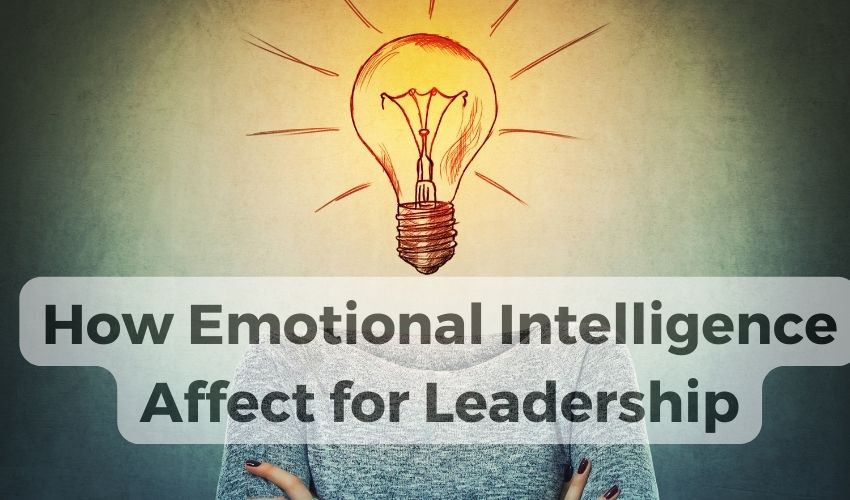Emotional intelligence is a crucial aspect of effective leadership in the business world. Understanding the concept and its impact on leadership is essential for driving success and building strong relationships within organizations. This article explores the connection between emotional intelligence and leadership competencies, highlighting the significance of emotional intelligence in the business landscape.
Definition and Components of Emotional Intelligence
Emotional intelligence can be defined as the ability to recognize, understand, and manage one’s own emotions and the emotions of others. It encompasses several key components that contribute to effective leadership. These components include self-awareness, self-regulation, empathy, motivation, and social skills. Each component plays a vital role in leadership and has a direct impact on decision-making processes.
Benefits of Emotional Intelligence in Leadership
Leaders who possess high emotional intelligence enjoy numerous benefits in the business realm. Enhanced communication and interpersonal skills allow leaders to build stronger connections with their team members, fostering a positive work environment. Moreover, emotional intelligence improves conflict resolution and problem-solving abilities, enabling leaders to address challenges effectively. Increased employee engagement and motivation are also key outcomes of emotional intelligence, leading to higher productivity and job satisfaction. Additionally, emotional intelligence helps in building trust and nurturing a positive organizational culture that promotes collaboration and innovation.
Developing Self-Awareness
Self-awareness is a fundamental component of emotional intelligence and plays a critical role in effective leadership. Leaders who are self-aware recognize and understand their own emotions, strengths, and weaknesses. This awareness enables them to make informed decisions and respond appropriately to different situations. Developing a growth mindset and being open to feedback are essential in fostering self-awareness. By practicing self-reflection and self-assessment techniques, leaders can gain deeper insights into their emotions, behaviors, and impact on others.
Cultivating Self-Regulation
Self-regulation is another crucial aspect of emotional intelligence that contributes to effective leadership. Leaders with strong self-regulation skills can manage and control their emotions even in high-pressure situations. This ability allows them to make rational decisions, maintain composure, and inspire confidence in their team members. Developing resilience and stress management techniques is essential for leaders to navigate challenges while demonstrating integrity and ethical behavior.
Building Empathy
Empathy is an integral part of emotional intelligence and has significant implications for leadership and business. Leaders who possess empathy are able to recognize and understand the emotions, perspectives, and needs of others. This understanding enables them to foster meaningful connections, inspire trust, and create a supportive work environment. Practicing active listening and non-verbal communication skills are essential in demonstrating empathy. By showing empathy in decision-making and conflict resolution, leaders can build stronger relationships and promote collaboration within their teams.
Motivation and Inspiring Others
Emotional intelligence is closely linked to motivation and plays a vital role in inspiring others. Leaders with high emotional intelligence are adept at setting compelling visions and goals for their teams. They communicate effectively and recognize the importance of recognizing and appreciating the efforts of their team members. By fostering open lines of communication, providing regular feedback, and offering opportunities for personal and professional growth, leaders can inspire and motivate their employees.
Developing Social Skills
Social skills are a key component of emotional intelligence that contributes to effective leadership. Leaders with strong social skills can build effective relationships and possess networking abilities. They are adept at communicating their ideas, negotiating effectively, and resolving conflicts. By promoting teamwork, collaboration, and inclusivity, leaders can create an environment that values diverse perspectives and encourages the sharing of knowledge and ideas.
Emotional Intelligence and Leadership Styles
Different leadership styles align differently with emotional intelligence. Transformational leadership, for example, places a strong emphasis on emotional intelligence, as it involves inspiring and motivating employees to reach their full potential. Democratic leadership also aligns with emotional intelligence principles, as it emphasizes empathy, collaboration, and inclusivity. It is essential for leaders to adapt their leadership styles based on the situation and leverage emotional intelligence effectively to maximize their effectiveness.
Emotional Intelligence and Conflict Resolution
Emotional intelligence plays a significant role in conflict resolution within the business context. Leaders with high emotional intelligence can effectively manage and resolve conflicts constructively. By practicing active listening, demonstrating empathy, and considering different perspectives, leaders can foster an environment that encourages open dialogue and problem-solving. Moreover, emotional intelligence helps leaders promote win-win solutions and create a positive work environment that values open communication and continuous improvement.
Emotional Intelligence and Change Management
Leading through change requires strong emotional intelligence. Leaders must understand and address the emotions of their team members during times of change. Effective communication, managing resistance to change, and navigating uncertainty and ambiguity are all areas where emotional intelligence can be leveraged. By demonstrating empathy, providing support, and effectively communicating the need for change, leaders can navigate transitions more successfully and help their teams adapt to new situations.
Emotional Intelligence and Team Building
Emotional intelligence plays a crucial role in team building. Leaders who possess emotional intelligence can create a culture of trust, respect, and collaboration within their teams. By valuing diverse perspectives, promoting inclusivity, and encouraging open communication, leaders can foster an environment where team members feel empowered and motivated to contribute their best. Leveraging emotional intelligence helps enhance team dynamics and performance, ultimately driving business success.
Leadership Development and Emotional Intelligence
Recognizing the importance of emotional intelligence in leadership, organizations should incorporate emotional intelligence training in leadership development programs. Providing leaders with resources, support, and opportunities to enhance their emotional intelligence is essential. Additionally, organizations should measure and evaluate emotional intelligence competencies as part of their leadership development initiatives to ensure continuous improvement.
Emotional Intelligence and Organizational Culture
Emotional intelligence has a significant impact on organizational culture. Organizations that value emotional intelligence and its benefits can create a culture that promotes its development and application. By integrating emotional intelligence into performance management and talent development processes, organizations can align behaviors with organizational values and foster a positive and inclusive work environment.
Emotional Intelligence and Customer Relationships
Emotional intelligence is essential in building strong customer relationships. Leaders who possess emotional intelligence can develop empathy and understanding towards customers’ needs and emotions. Effective communication and active listening skills enable leaders to engage with customers on a deeper level, anticipate their needs, and exceed their expectations. By leveraging emotional intelligence, leaders can drive customer satisfaction, loyalty, and long-term business success.
Emotional Intelligence and Personal Growth
Emotional intelligence is not only crucial for leadership but also for personal growth. Leaders should focus on self-development strategies to enhance their emotional intelligence. Seeking feedback, engaging in continuous learning, and applying emotional intelligence skills in personal and professional life contribute to personal growth and improved leadership effectiveness.
Challenges and Strategies for Developing Emotional Intelligence
Developing emotional intelligence may present challenges for individuals. Overcoming biases and managing emotional triggers are key areas to address. Seeking support and resources, such as emotional intelligence training programs and coaching, can aid in the development process. Additionally, practicing mindfulness and self-care techniques is important in enhancing emotional intelligence and overall well-being.
Conclusion
In summary, emotional intelligence plays a crucial role in leadership for businesses. Leaders who possess emotional intelligence are better equipped to navigate complex relationships, drive success, and create positive work environments. The components of emotional intelligence, such as self-awareness, self-regulation, empathy, motivation, and social skills, contribute to effective decision-making and interpersonal interactions. By recognizing the importance of emotional intelligence and cultivating it within themselves, leaders can elevate their leadership capabilities and drive personal and professional growth.
FAQs
Emotional intelligence refers to the ability to recognize and understand emotions, both in oneself and others. It plays a crucial role in leadership by enhancing communication, decision-making, and relationship-building skills.
Emotional intelligence empowers leaders to connect with their teams, inspire motivation, manage conflicts, and make informed decisions based on a deeper understanding of emotions and their impact on individuals and groups.
Absolutely! While some people may have a natural inclination towards emotional intelligence, it is a skill that can be cultivated and enhanced through self-awareness, practice, and continuous learning.
Leaders with high emotional intelligence can foster a positive work culture by promoting trust, empathy, and open communication. They create an environment where employees feel valued, motivated, and engaged.
Developing emotional intelligence involves various strategies, such as practicing self-reflection, seeking feedback, actively listening to others, managing emotions effectively, and continually expanding self-awareness.
Leaders with high emotional intelligence are more likely to connect with their employees on a deeper level, understand their needs and aspirations, and create an environment that encourages engagement, leading to higher productivity and satisfaction.
Yes, emotional intelligence equips leaders with the skills to manage conflicts constructively by empathetically understanding different perspectives, communicating effectively, and finding win-win solutions.
Yes, there are several assessments and tools, such as the Emotional Quotient (EQ) test, that can provide insights into an individual’s emotional intelligence levels and areas for development.







![What Are The Best Twelve Managerial Strategies For Managers? [Revealed!] best practices for manager](https://thesmbonline.com/wp-content/uploads/2022/12/best-practices-for-manager-e1670987378847-150x150.jpg)

![Why Does Need to Change In Structure of Organizations?[Revealed] Why Organizational Change Important](https://thesmbonline.com/wp-content/uploads/2022/12/Why-Organizational-Change-Important-e1671578088451-150x150.jpg)